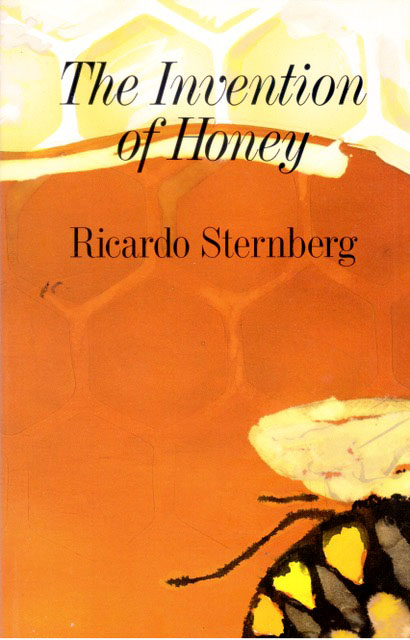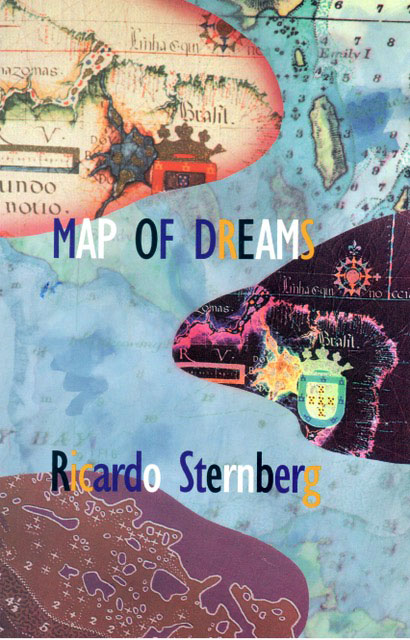Ricardo Sternberg
Ricardo Sternberg is a Canadian poet. He was born in Brazil and moved with his family to the United States when he was 15. In 1979 he emigrated to Canada to teach at the University of Toronto. In addition to his four collections of poetry, his poems have appeared in The Paris Review, The Nation, Descant, The Walrus, The American Poetry Review among other journals.
Charm in the deeper, original sense of talismans and magic, of sinuous, enchanting syntax and strange, brilliant images; poems infused with feeling for what Theodore Roethke called ‘all things innocent, hapless, forsaken.’ – The Canadian Forum
“A collection of lucid, intelligent, and wryly witty poems about spiders and bees, angels and alchemists, love and sex.” – The Globe & Mail
From ancient tales through postmodern narratives, the quest for the Wandering Islands, a version of paradise, has been a mainstay of the western literary imagination. Map of Dreams, a scintillating log of one such voyage, features such wonders as an animate figurehead, an island that etherizes, and a pilot who navigates by smell. Shot through with lists of Babylonian secrets and catalogues of books in hermetic libraries, this sequence is nonetheless as approachable as the Odyssey and the Cantebury Tales, to which the poets’s gleaming narrative and vivid sketches are gracefully indebted. – Stephen Yenser
Serene, yet balanced always on the hinge where surprise and conviction are simultaneous –with this book Sternberg reminds us that there are winds that blow from the world of dream, then whorled in the ear of a superb poet, freshen the real. – Don McKay
Sternberg sets in motion a most remarkable array of agents: birds, brujos, quarks, carrots and Cyril of Thessalonika… among them lovers who trapeze through a poetry of formal concentration and assuredness. Bamboo Church is a wonderful collection; full of play, and energy, and delight, it draws together under one roof satire that has tang, argument that is sinuous and subversive, and stories both open and true. – Robert Finley
Ricardo Sternberg is a poet of memory, ‘of those stubborn afternoons [that]refuse to move.’ Sometimes he returns us to the green and easy world of his Brazilian childhood. Other times he recovers the blue world of Greece and its switchbakcs of mountain paths and histories. Able to write on almost any subject from thumbs to ants and Spinoza, he writes with humour and grace, both exiled and at home in the world of language.” – Rosemary Sullivan
Always fresh and sensuous, full of the seductive rhythms he delights in teaching a reader to enjoy, Ricardo Sternberg’s poems dance the steps of an earthly muse, traveling from south to north. In poems that would do Elizabeth Bishop proud, he brings Brazil to Canada in lines so intimate you will feel each lyric is designed for your ears alone. Evoking gardens, loves, and quirky family members in startling swaths of verbal color, he welcomes us to his Bamboo Church, where, in each poem he makes palpable his reverence for the evanescent. You cannot help but read his brilliant parable of life with delight. This is Sternberg’s best book yet.” – Molly Peacock
The narrators and protagonists of Some Dance live their stories to a tune that is at once smart, humorous, graceful and sad. Like the music of the spheres in the title poem, Sternberg’s voice is more human because it is slightly off, modulating between the formal and the vernacular, the sacred and the profane. I felt like I was in a conversation with an urbane friend blessed with the gift of gab, whose expressions like “no can do” and “hunky-dory” are right at home with his classical references and complex Protean perspectives. – Greg Keeler
Ricardo Sternberg is a master of the small verse narrative—the fable, the parable, the blues, the fado. One affective register is that of saudade, a longing pursuant to a loss, but Some Dance also features celebratory erotic lyrics, including the lovely title poem. All told, even as its craft yokes adroitly managed verse (usually a three- or four-beat line) and economical plot, this seductive volume’s tone is bittersweet. Engagingly at ease with the occult and the magical—palmistry, crystal gazing, auspices, prestidigitation—its poems are nonetheless altogether earthy. The Elizabeth Bishop of her Brazilian poems would be delighted. – Stephen Yenser
Allusive, tongue-in-cheek, feathering the colloquial, these poems map out a home coming to love’s withheld givens. Only under Sternberg’s deft touch,could George Herbert’s exhortation that we must sit down and taste love’s meat be turned into the “eating crow” of tender compromises. Only in Sternberg could the Biblical “Song of Songs” bear the fruit of real-time domestic routine. It all adds up: this worthy contribution to a way of loving and being that, should it come at last, would represent “a new syntax of gestures.” – Jeffery Donaldson



